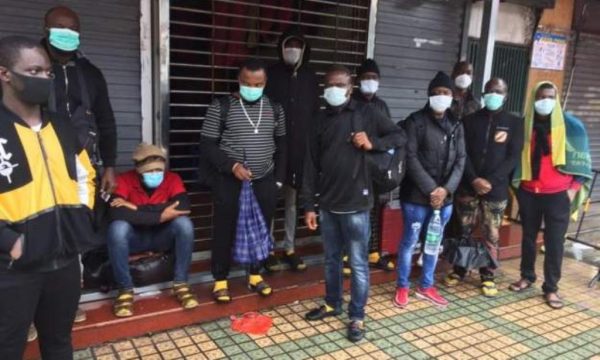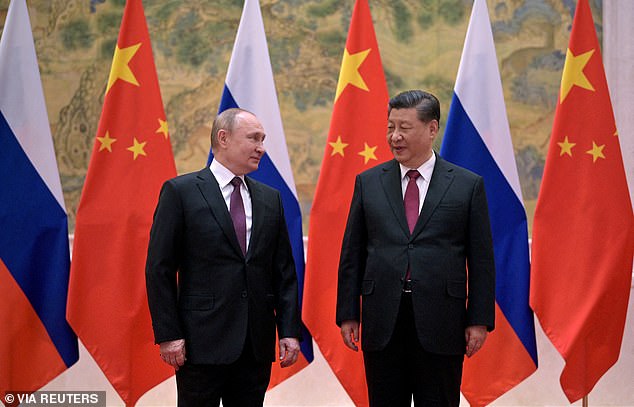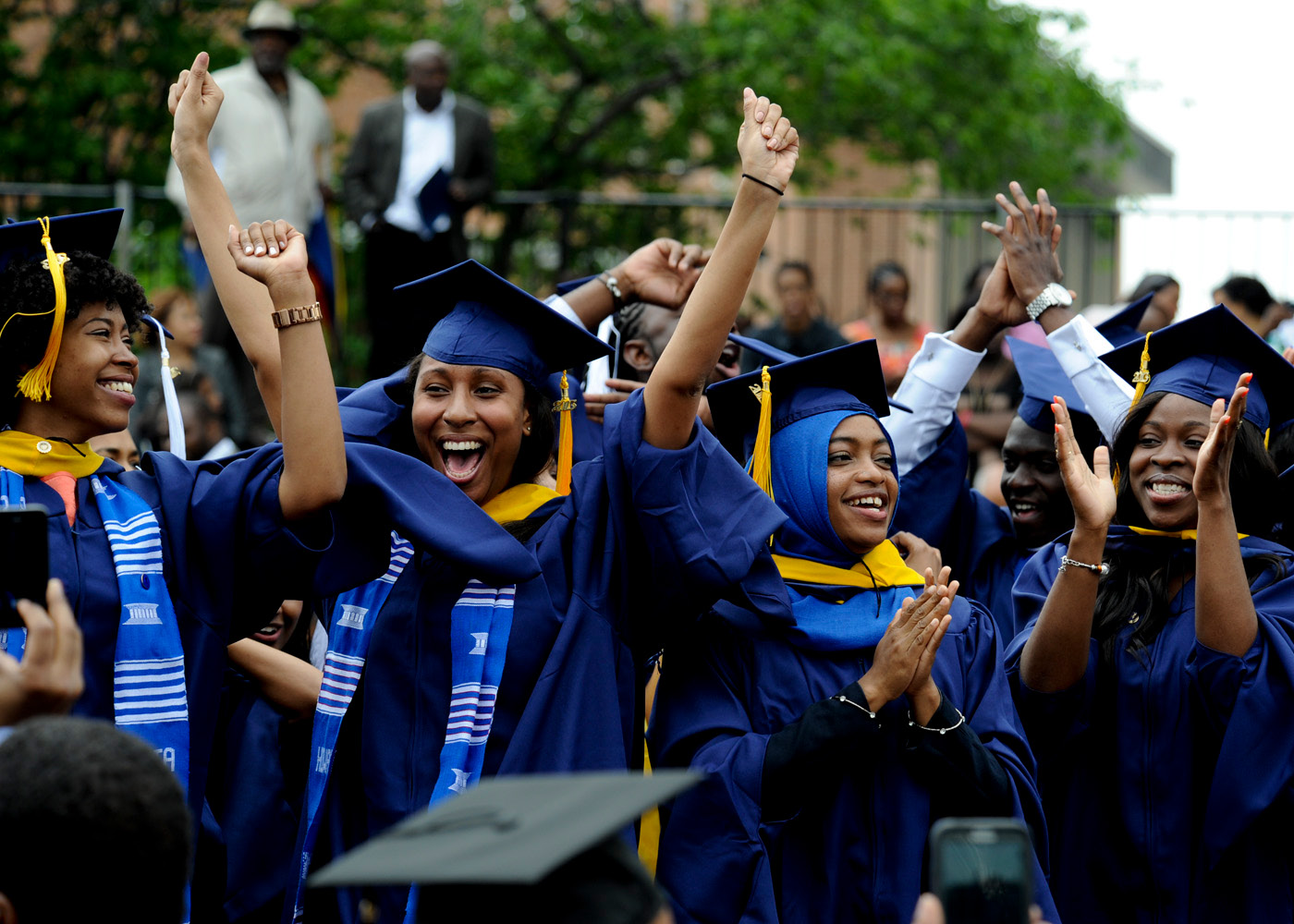News
Over 100 Nigerians affected in China Vs Africans Crackdown
More than 100 Nigerians are affected in the crackdown by Chinese authorities against Africans in their effort to check the spread of the Coronavirus, the president, Association of Nigerian Community in China, Maximus Ogbonna, said yesterday.

Ogbonna, who is currently quarantined in his house in Guangzhou, told Daily Trust yesterday: “They want to ensure that everyone is quarantined to know who has the disease and get them cured.”
He, however, said no one had evidence of a government directive asking landlords or hotels to turn away foreign nationals. “Because of the fear of contracting the disease, some house owners began to evict their African tenants, causing many people to sleep on the streets,” he said.
The Southern Chinese city of Guangzhou on Tuesday announced it was upgrading its COVID-19 risk level from low to medium after the discovery of domestic infections related to imported cases, state-run Global Times reports. The paper reported that five Nigerians confirmed to have coronavirus had been to eight restaurants, nine hotels and 12 public places before testing positive. Since then, local hostility toward foreigners followed.
Earlier this week, several images circulated on social media showed Africans, including Nigerians, sleeping on the streets of Guangzhou after being unable to find shelter. They said they were evicted from their homes by landlords and turned away from hotels despite having no symptoms or contact with coronavirus patients. Those not evicted said they were subjected to random testing for Covid-19, and being quarantined for 14 days in their homes.
On Thursday, Chinese Foreign Ministry spokesman Zhao Lijian stressed that the Chinese government treats all foreigners in China equally, opposes any discriminatory practices targeted at specific groups of people, and has zero tolerance for discriminatory words and actions. Ogbonna said the Nigerian Consulate in Guangzhou had intervened, while those stranded on the streets had been evacuated and quarantined in hotels. “For now, the police have taken those on the streets to various hotels to quarantine them. They are not on the streets now,” Ogbonna said. He, however, said they were being quarantined in expensive hotels and the bill rests squarely on them. “Some complained that the hotels they put them are very expensive, and they have to stay for 14 days. Some of them had already been quarantined for 14 days.
They were asked to do another 14 days, making it 28 days. “Paying hotel bill for 28 days cost a lot of money, and they have not been working since January because many companies closed down,” Ogbonna added. Meanwhile, the African Group of Ambassadors in Beijing is protesting the ongoing forceful testing, quarantine and maltreatment of Africans in Guangdong Province. They said singling out of Africans for compulsory testing and quarantine had no scientific or logical basis and amounts to racism towards Africans. This was contained in a letter to China’s Ministry of Foreign Affairs and International Department of the Communist Party of China. The group said it was worrisome that Africans in Guangzhou were undergoing discrimination and stigmatization as they were made to forcefully and in a very crude manner undergo epidemic investigation and nucleic acid test and 14 days quarantine even if they had not travelled outside their jurisdictions, not come in contact with infected persons, and had no close contact or showed no symptom of COVID-19.
The group noted that Africans in China had at all times adhered to the laws of the country, particularly within the period of the outbreak. “We have not and cannot recall Chinese authorities reporting a case where our nationals have violated the anti-pandemic laws and regulations of the China government. Therefore, the singling out of Africans for compulsory testing and quarantine, in our view, has no scientific or logical basis and amounts to racism towards Africans in China. “From the foregoing, the impression is being created as though the spread of the virus is caused by Africans,” it said. The statement noted the inhuman treatment meted out on nationals of Togo, Nigeria and Benin who were ejected from their hotels in the middle of the night, and a group of African students studying in Sun-Yat Sen University in Guangzhou who were made to undergo nucleic acid test.
The statement also noted cases of selective testing of African students while other nationals were left out, and other cases of African men married to Chinese ladies who were demanded to take the COVID-19 test and their Chinese families left out, stressing that in some of those cases the men were pulled out of their families and quarantined in hotels alone. It also noted forced eviction of Africans from their various apartments and thrown into the streets with infant children and seizure of their passports in violation of international practices and conventions as well as threats of revocation of visas, arrest, detention and deportation for no reason.
In a related development, the Nigerians in the Diaspora Commission (NIDCOM) in a statement on Friday reiterated the federal government’s resolve to ensure the protection of all Nigerians wherever they live. The Chief Executive Officer of the commission, Abike Dabiri-Erewa urged the Chinese authorities not to make their laws discriminatory as consultations continue between both countries to find an amicable solution to the issues at hand. She advised Nigerians protesting on the streets of Guangzhou, China to report to the mission in Guangzhou, rather than roaming the streets. She noted that series of meetings had been held between Nigerian officials and their Chinese counterparts to resolve the impasse.
The Nigerian House of Representatives Speaker, Femi Gbajabiamila had late last week summoned the Chinese ambassador to Nigeria while the Foreign Affairs Ministry has also spoken with him to address the issues. The largest population of Africans lives in Guangzhou, many with short-term business visas, as they travel to China several times a year. In 2017, Xinhua, the official China news agency, reported that approximately 320,000 Africans entered or left China through Guangzhou. Many Africans say hostility to their presence is often, and the coronavirus crisis has increased it.




